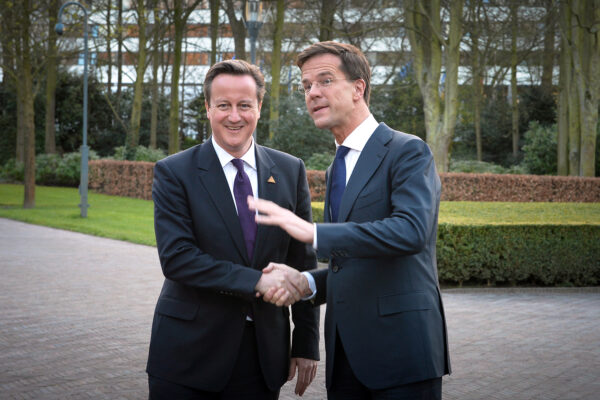
David Cameron is due to formally petition fellow European Union leaders for changes in Britain’s membership of the bloc this week.
Critics who argue that Cameron’s demands are vague have a point. But they shouldn’t make the mistake of thinking them meaningless altogether.
The BBC’s Gavin Hewitt reports that the British prime minister wants to avoid declaring a wish list by which his renegotiation effort can be judged.
Some even expect him to stage a fight to convince skeptics in his Conservative Party that he has wrung concessions from other leaders, Hewitt writes.
Few of Cameron’s demands are specific. Among other things, he wants an opt-out from “ever-closer union,” more power for national parliaments to safeguard the interests of countries outside the eurozone, less regulation from Brussels and more emphasis on the single market.
The present European Commission is already committed to less regulation, Hewitt points out, and parliaments already have a “yellow card” to put a brake on European legislation. The European Council — the summit of national leaders — has also already conceded that the aspiration to ever-closer union allows “for different paths of integration for different countries.”
The only real difficulty is curtailing labor migrants’ access to welfare benefits. Although most Northern European countries are sympathetic to Cameron’s proposal, Germany — the most powerful member state — has repeatedly warned that changes must not limit Europeans’ ability to work across the 28 nations of the European Union.
With that one exception, one may conclude, as The Economist‘s Bagehot columnist, Jeremy Cliffe, does, that “Britain is about to demand things that are variously symbolic, uncontroversial and already in train — but with plenty of noise.”
There is something to that. To convince all but the most hardline of Euroskeptics in his party, Cameron must make the renegotiation effort appear meaningful or he risks losing a referendum on the issue that is due by 2017.
But Cliffe is a little too sanguine when he argues that Britain’s membership is “infuriatingly satisfactory” as it is and the only reason Cameron even bothers is because the British are so irrationally Euroskeptic.
The fact that the rest of Europe is willing to give Cameron most of what he wants is in no small part due to his leadership. He recognized earlier than most that Europeans — Britons included — want the European Union to take a good look at itself before proceeding down the path of ever-closer union.
Across member states, voters have grown wary of European regulations and attempts to forge a sense of Europeanness when they still primarily identify as members of a nation.
Hence the growing support for focusing on those areas where European integration adds value — like the single market and justice cooperation — and for giving national parliaments a bigger say.
The real significance of Cameron’s “renegotiation” is that, if successful, it will formalize a process that has occurred in recent years as a result of the euro crisis: a division between the nineteen countries in the eurozone and the non-euro outsiders like Britain, Denmark, Poland and Sweden.
Most recently, German chancellor Angela Merkel joined the call for a more flexible Europe where countries can opt out of integration schemes. “The Europe of today is no longer a Europe of one speed,” she said.
This marks a significant shift in thinking about what the European Union should be.
If it’s hard to credit Cameron for this, it’s because he didn’t get too far ahead of public opinion. Other leaders took time to catch up. Now that they are it would be rather unfair to say Cameron is simply going with the flow. He helped put this in motion.
